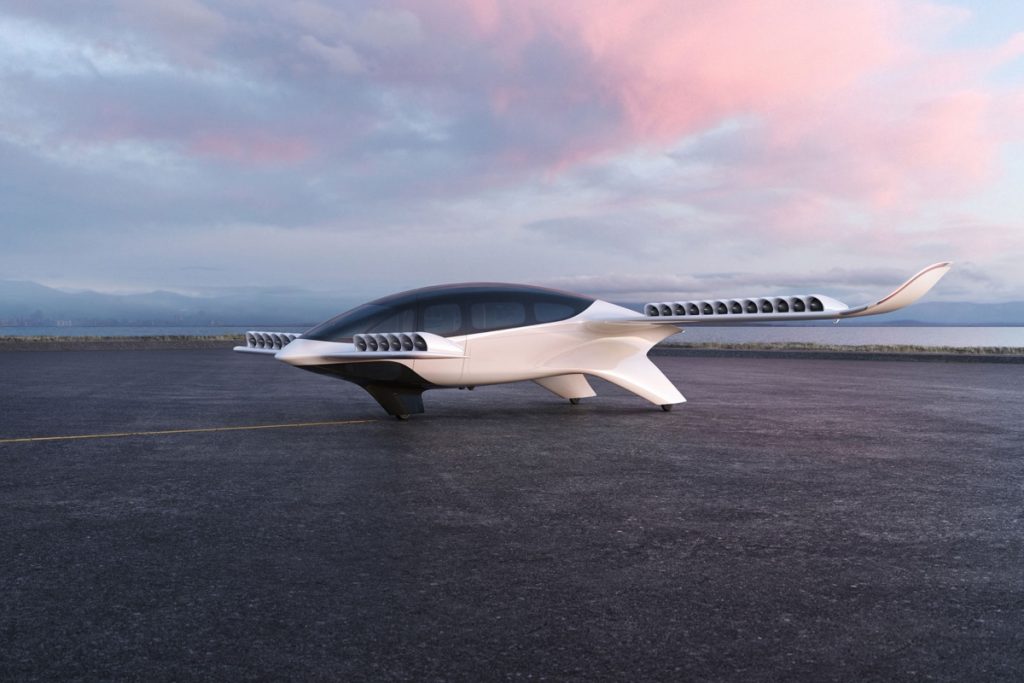
News
Aircraft manufacturers
Lilium to merge with Qell SPAC, unveils 7-Seater eVTOL
March 31, 2021 By Naomi Szeben
 The Lilium 7-Seater Jet has a projected cruise speed of 175 mph at 10,000 feet and a range of 155-plus miles. (Photo: Lilium)
The Lilium 7-Seater Jet has a projected cruise speed of 175 mph at 10,000 feet and a range of 155-plus miles. (Photo: Lilium) Lilium GmbH of Germany entered into a definitive business combination agreement with Qell Acquisition Corp., a publicly listed special purpose acquisition company, with the intention of being listed on the Nasdaq exchange. Qell, led by Barry Engle, a former president of General Motors North America, is focused on developing next-generation, sustainable mobility. Upon closing of the transaction, the company will be called Lilium, and it is anticipated that ordinary shares will be listed on the Nasdaq under the ticker symbol LILM.
“Qell set out to find an exceptional and ambitious technology company, with significant growth potential – and in Lilium we have found that,” said Barry Engle, Founder and CEO, Qell. “Lilium has unique technology and one of the most accomplished engineering and commercial teams in electric aviation. The 7-Seater Lilium Jet is a game-changer for transportation.”
During the announcement of its merger plan, Lilium also revealed its 7-Seater Lilium Jet targeting regional Urban Air Mobility service with access to more landing sites and, therefore, the opportunity to build a higher network density while avoiding expensive ground infrastructure. The 7-Seater Lilium Jet will be the company’s first aircraft to go into serial production.
The Lilium 7-Seater Jet has a projected cruise speed of 175 mph at 10,000 feet and a range of 155-plus miles, including reserves. The company describes the aircraft as the culmination of five years of technology development across four generations of technology demonstrators, including Lilium’s full-scale 5-Seater.
Lilium applied for concurrent type certification for a high-capacity aircraft with EASA and the FAA in 2018, which then initiated the development of the 7-Seater Lilium Jet. In 2020, the aircraft received CRI-A01 certification basis from EASA.
Lilium’s eVTOL platform is based on proprietary Ducted Electric Vectored Thrust (“DEVT”) technology, along with key control systems, aircraft and battery architecture. The company explains DEVT technology enables it to scale to higher-capacity aircraft and keep noise emissions and ground footprint low.
“We’re incredibly excited to reveal the development of our 7-Seater Lilium Jet and announce the next stage of our growth,” said Daniel Wiegand, Co-Founder and CEO, Lilium. “This is a validation of all the hard work over the last five years from our talented team and our world-class partners and investors.
“Our vision is to create a sustainable and accessible mode of high-speed travel and bring this to every community,” continued Wiegand. “Transport infrastructure is broken. It is costly in personal time, space consumption and carbon emissions. We are pursuing our unique electric jet technology because it is the key to higher-capacity aircraft, with lower cost per seat mile while delivering low noise and low emissions.”
Lilium explains the proceeds from the Qell transaction are intended to fund the launch of commercial operations, planned for 2024. This includes the finalization of serial production facilities in Germany, launch of serial production aircraft and completion of type certification.
Lilium has more than 400 engineers and a leadership team that has worked on developing aircraft like Airbus A320, A350 and A380, Eurofighter Typhoon, Gulfstream G650 and Harrier VTOL. Lilium’s aircraft will have 30-times fewer components than a commercial airliner and is designed for ease of manufacturability and scalability.
To date, Lilium has secured approximately US$200 million of commitments from infrastructure partners, including Ferrovial and Tavistock Development Company. Up to 14 vertiports are already planned in Florida.